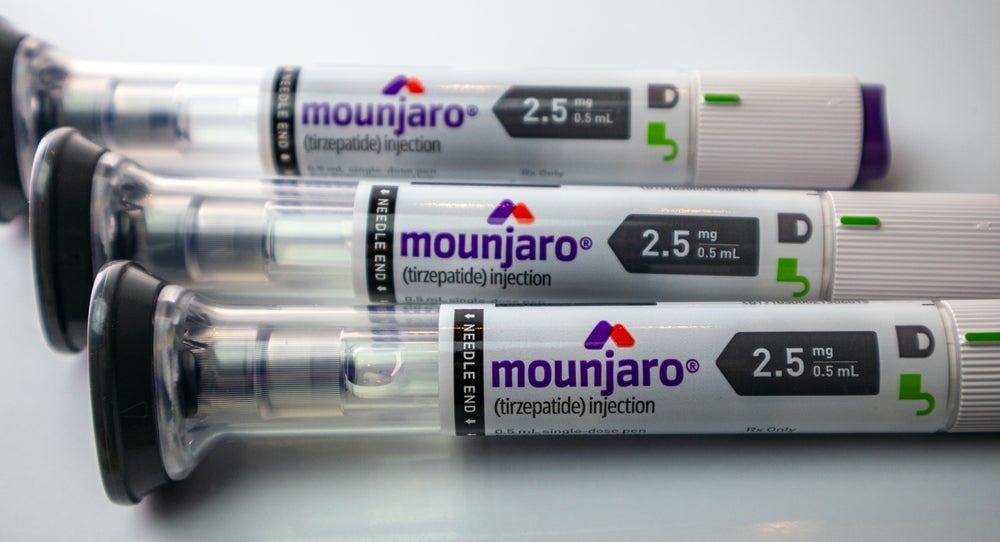Improved IVF Success Rates Achieved with Simple Oral Swab Test
In the realm of reproductive medicine, innovation continues to pave the way toward more personalized and effective fertility treatments. A groundbreaking new study led by Professor Yvonne Lundberg Giwercman at Lund University offers unprecedented insights into optimizing in vitro fertilization (IVF) outcomes by tailoring hormone therapies based on genetic profiles. Published in Frontiers in Endocrinology, […]


In the realm of reproductive medicine, innovation continues to pave the way toward more personalized and effective fertility treatments. A groundbreaking new study led by Professor Yvonne Lundberg Giwercman at Lund University offers unprecedented insights into optimizing in vitro fertilization (IVF) outcomes by tailoring hormone therapies based on genetic profiles. Published in Frontiers in Endocrinology, this extensive clinical trial investigates how variations in the follicle-stimulating hormone receptor (FSHR) gene impact a woman’s response to different hormone treatments during IVF cycles, pointing to a future where fertility interventions could be fine-tuned to individual genetic makeup.
Infertility affects approximately 15% of couples of reproductive age worldwide, with delayed parenthood playing a significant role in this rising challenge. As societal trends push couples to postpone starting families, the demand for assisted reproductive techniques (ART) such as IVF has surged dramatically. Europe alone performs close to one million IVF cycles annually, and countries like Sweden contribute around 25,000 of these. Despite the popularity of IVF, the procedure is far from foolproof: roughly 75% of attempts fail, and a substantial proportion of women experience adverse reactions to hormone treatments, some severe enough to require emergency care.
At the center of IVF protocols is hormone therapy that stimulates the ovaries to produce multiple mature eggs simultaneously. Conventionally, clinicians select between biological (natural) or synthetic hormone treatments to induce follicular development, but this choice has typically been made without clear predictive markers for efficacy or safety. The one-size-fits-all model often results in significant variability in patient response and outcomes, highlighting the need for more personalized approaches. Professor Lundberg Giwercman and her team sought to address this challenge by integrating genetic insights into treatment planning.
The clinical trial encompassed 1,466 women undergoing IVF at the Reproductive Medicine Centre at Skåne University Hospital in Malmö, Sweden. Importantly, women with confounding conditions such as endometriosis or polycystic ovary syndrome (PCOS) were excluded to maintain study clarity. Of the volunteers, 475 were randomized to receive one of two distinct hormone regimens, while the remainder served as control subjects. The focal point of investigation was the N680S polymorphism of the FSH receptor gene, known to critically mediate follicle-stimulating hormone’s role in ovarian stimulation and egg maturation.
By leveraging advanced gene sequencing techniques, the researchers identified specific genetic variants that correlate with differential responses to biologically derived versus synthetic gonadotropins. Women possessing a particular FSHR variant exhibited enhanced responsiveness and improved pregnancy outcomes when treated with biological hormone preparations, while others benefited more from synthetic alternatives. This clear genotype-treatment interaction opens the door to genotype-guided ovarian stimulation protocols, significantly enhancing IVF success rates by aligning therapy with individual genetic predispositions.
Among the most striking findings was a 38% increase in cumulative pregnancy and live birth rates in women whose hormone therapy matched their FSHR genotype compared to those who received non-tailored treatments. On a population scale, this translates to approximately 110 additional babies born per 1,000 women undergoing IVF—a substantial improvement that could reshape fertility treatment paradigms globally. These data underscore the clinical potential of precision medicine approaches to reproductive endocrinology, offering both improved patient outcomes and more efficient use of healthcare resources.
Recognizing the clinical and economic significance of these findings, the research team also tackled the practical challenges of translating genetic insights into rapid clinical decision-making tools. Traditional gene sequencing can be time-consuming and costly, limiting its routine application in fertility clinics. To overcome this, the team developed a novel, simplified oral swab test capable of identifying the relevant FSHR variants within an hour. The assay uses a colorimetric readout—displaying either pink or yellow—to enable clinicians and patients to visualize results without specialized equipment or technical expertise.
Commercialization efforts for this innovative diagnostic tool are already underway. The researchers have founded Dx4Life AB, a spin-off company dedicated to bringing the oral swab test to market. Supported by Lund University’s innovation hubs and incubators, including LU Innovation, LU Ventures, and SmiLe, the project is positioned for rapid advancement and integration into clinical practice. The goal is ambitious but achievable: to make this test widely accessible by early 2026, revolutionizing IVF treatment personalization.
Beyond improving pregnancy rates, genotype-guided therapy promises to reduce the physical and emotional burden women face during IVF. Side effects from hormone stimulation can range from mild discomfort to life-threatening complications requiring intensive care, creating a significant barrier to treatment adherence and success. By selecting the hormone regimen best suited to each patient’s genetic makeup, clinicians can minimize adverse reactions and reduce the risk of expensive emergency interventions, ultimately benefiting both patients and healthcare systems.
This study also represents a broader shift within reproductive medicine toward embracing precision health strategies. Increasingly, the integration of genomics and personalized diagnostics is reshaping how fertility specialists approach treatment planning. The FSHR-based approach highlighted in this research exemplifies how targeted biomarker identification can guide therapy, moving away from trial-and-error methods and toward more predictable and successful outcomes.
Professor Lundberg Giwercman’s extensive experience researching fertility in both males and females added critical expertise to the study’s design and interpretation. Her leadership underscores an important multidisciplinary collaboration bridging molecular genetics, clinical embryology, and patient-centered care. Moreover, her dual role as both lead investigator and CEO of Dx4Life AB exemplifies how clinician-scientists can effectively translate academic discoveries into tangible healthcare innovations.
The impact of this research extends beyond Sweden, holding promise for IVF clinics worldwide. As genetic testing becomes more affordable and streamlined, genotype-guided gonadotropin selection could become a standard of care in fertility treatment protocols globally. This breakthrough offers hope to millions of couples facing infertility by increasing the likelihood of successful pregnancies and reducing the physical, psychological, and financial toll of multiple unsuccessful IVF cycles.
In the coming years, further studies will be needed to validate and refine the genetic markers involved, potentially incorporating additional genes and polymorphisms to further enhance predictive accuracy. Integration with other emerging technologies — such as artificial intelligence-driven embryo selection and real-time hormonal monitoring — could create a comprehensive, data-driven ecosystem designed to maximize reproductive success with minimal patient risk.
Ultimately, this pioneering research marks a significant milestone in reproductive endocrinology. By moving the field closer to personalized fertility medicine, it opens new avenues for improving patient care, optimizing resource allocation, and bringing the dream of parenthood closer to reality for countless couples.
Subject of Research: People
Article Title: FSH receptor N680S genotype-guided choice of gonadotropin increases cumulative pregnancy and live birth rate after in vitro fertilization
News Publication Date: 13-May-2025
Web References: 10.3389/fendo.2025.1576090
Image Credits: Credit: Tove Smeds
Keywords: IVF, follicle-stimulating hormone receptor, FSHR gene, genotype-guided therapy, hormone treatment, fertility, in vitro fertilization, assisted reproduction, personalized medicine, gonadotropin, reproductive endocrinology, genetic testing
Tags: assisted reproductive techniques advancementsclinical trials in reproductive medicinefollicle-stimulating hormone receptor researchgenetic profiling in IVFhormone therapy adverse reactionsimpact of delayed parenthood on fertilityinfertility treatments innovationsIVF Success RatesLund University IVF studyoptimizing fertility outcomesoral swab test for fertilitypersonalized hormone therapies
What's Your Reaction?


































